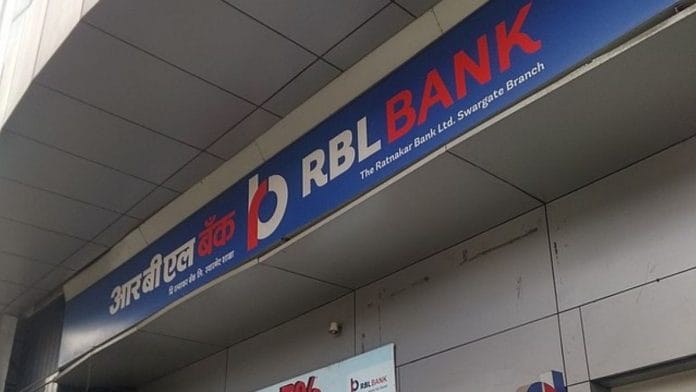New Delhi: When the stock markets opened at 9:15 am Monday, everything was business as usual. Within minutes, one stock — RBL Bank — took a continuous beating and fell nearly 23.2 per cent to close at Rs 140.90 a share.
Two days before this, the Reserve Bank of India (RBI) had appointed its official on the board of RBL Bank. The reason for this move was not clear — was it non regulatory compliance, governance issues at the bank or was the RBI not happy with the top leadership of RBL Bank?
Speculation had started Saturday, when the bank’s long-time chief executive officer (CEO) Vishwavir Ahuja suddenly went on leave and the board of the bank appointed Rajeev Ahuja, the executive director, as the interim MD and CEO.
The bank issued a statement the next day and held a press conference, saying that Vishwavir Ahuja’s leave was due to medical reasons.
During the media briefing, Rajeev Ahuja said he was not aware of any governance-related investigations against any member of the bank, but said more needed to be done on risk management and compliance.
Quoting sources close to the central bank, CNBC-TV18 had reported that the RBI’s move to appoint its official on the bank’s board came as there was a delay in the process of appointing Vishwavir Ahuja’s successor — the banking regulator had extended Vishwavir Ahuja’s term by only a year in June, against the bank’s request for a three-year term extension. Furthermore, the report said the RBI move was to communicate its stand on risk management within the bank.
Also read: Sensex, Nifty race to over 1-week high amid global stock rally
Bank’s financials healthy: RBI
RBI clarified Monday that RBL Bank’s financial health was stable and that the appointment, under Section 36AB of the Banking Regulation Act, 1949, was done when it was felt that the board needed closer support in regulatory/supervisory matters.
“The Reserve Bank would like to state that the bank is well capitalised, and the financial position of the bank remains satisfactory,” the statement said.
The sell-off in the bank’s stock Monday was in line with similar occurrences in the past whenever RBI intervened in banks — sparking concerns about such banks’ asset quality and governance issues.
Trying to sooth frayed nerves of investors, the RBI used metrics like capital adequacy ratio (CAR) and liquidity coverage ratio (LCR) of the bank to assure that the bank is financially stable.
CAR is a measure to assess if the bank has enough capital, as against minimum capital required to be kept by the bank, to withstand any shock in case of a downturn or any sudden trigger. As of 30 September, RBL Bank had a CAR of 16.33 per cent, as against a base requirement of 9 per cent, signifying a healthy capital position of the bank.
LCR refers to the portion of assets of a bank which are highly liquid and can be converted to cash to meet short-term obligations like interest payments. The RBI said RBL Bank has an LCR of 153 per cent of its net cash flows as on 24 December 2021, as against regulatory requirement of 100 per cent.
Lastly, Provision Coverage Ratio (PCR), which defines the portion of bad assets that a bank must provide for from its profits, stands at 76.6 per cent of the total gross non-performing assets of RBL Bank as on 30 September.
Volatility in RBL’s earnings
Despite all these clarifications, market watchers still believe that the RBI may have had reasons of its own that the bank may not be privy to.
RBL Bank’s rise has largely been guided through its investments in high-risk areas like credit cards and microfinance, resulting in volatility in its earnings. Experts said the bank, in the medium-term, should focus on reducing the share of unsecured loans, credit cards and microfinance from 31 per cent of its total product portfolio currently, and on further increasing the share of retail deposits.
A look at the data of investors in the bank available on the Bombay Stock Exchange reveals that foreign investors hold the maximum shares in RBL Bank at 29 per cent, followed by retail investors, who own close to 17.50 per cent in the bank. Mutual funds, high net-worth individuals and insurance companies own around 15.8 per cent, 7.75 per cent and 5.3 per cent respectively in the bank.
(Edited by Saikat Niyogi)
Also read: ‘Data breach at India’s biggest demat depository exposed 4.39 cr investors’: E-security firm






